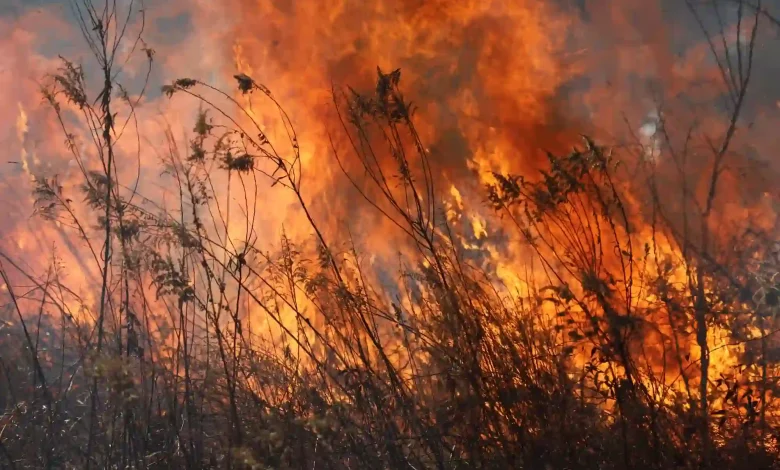What to Throw Away After Smoke Damage

When a fire strikes, the smoke damage can be substantial and long-lasting. Dealing with the aftermath of a fire is a daunting undertaking. You need to know what to save and what to throw away after smoke damage.
We will discuss the items that are advised for disposal following fire damage. Knowing what has to be eliminated will help you repair your space and provide a safe and healthy atmosphere, whether you’re a homeowner or a tenant.
Continue reading to find out what to throw away after smoke damage.
Upholstered Furniture
Removing furniture is crucial to ending health dangers and the lingering smell of smoke. Upholstered furniture, such as sofas, chairs, and beds, absorbs smoke particles and smells. Smoke damage can be hard to remove from these goods.
You can look for furniture removal companies that provide top-notch services.
Rugs and Carpets
Rugs and carpets serve as smoke and odor traps if exposed to a lot of smoke. Smoke particles can become embedded inside the fibers, making complete restoration difficult. The type of carpet can determine whether or not it is discarded.
Synthetic carpets are more resistant to smoke damage. A professional cleaning may save synthetic carpets, although this depends on the severity of the damage. It is essential to clean smoke-damaged carpets and rugs to avoid potential respiratory concerns.
Window Treatments
The closeness of curtains, drapes, and blinds to windows makes them vulnerable to smoke damage. Smoke may permeate the fabric and build up over time, leaving behind lingering scents. To guarantee a clean and smoke-free living area, think about removing and replacing window coverings.
Appliances and Electronics
Electronic gadgets and devices can suffer marked damage from smoke. Smoke particles can enter interior parts, even if they appear undamaged from the exterior. It also makes them risky or unreliable.
Consider having an expert inspect the damage and discard any devices and appliances.
Children’s Toys
Smoke particles can be absorbed by children’s toys, especially soft toys or products with porous surfaces. These toys wind up in children’s mouths, posing severe health risks. It is best to discard smoke-damaged toys and replace them with fresh, uncontaminated ones to ensure your children’s safety.
Cosmetics and Personal Care Products
Makeup and other toiletries include chemicals and minerals influenced by fire heat. Water and equipment are efficient at saving lives and homes. It also has impurities and poisons that, even if you can’t see them, affect the makeup of the goods in your bathroom.
The safest solution is to discard all cosmetics, toiletries, and junk removal and replace them. Smoke may infiltrate cosmetics and personal care products, making them unsafe. Cosmetics, lotions, and creams can collect smoke particles, risking their quality and safety.
It is advised to err on the side of caution and replace smoke-exposed items to avoid any effects on your skin or health.
Non-Washable Clothing
Even after washing, clothing made of delicate fibers or labeled “dry clean only” may retain smoke scents. Consider throwing them out to keep the odor from invading your wardrobe.
HVAC Filters and Ductwork
The HVAC system can disperse smoke particles throughout the house. Replace the filters to guarantee clean air circulation. You may also hire an expert to clean or examine the ducting.
It will cut smoke particle recirculation and create a healthy indoor atmosphere. Pollutants, bacteria, and microorganisms can be trapped in the filter and ducting systems. These devices can trap smoke particles and disperse them into the air, thereby increasing indoor air pollution.
Smoke damage can lead to corrosion and other problems with the whole system. Throwing away the filters and ductwork can help improve interior air quality. It also prevents future damage and increases system performance.
Ensure that items are replaced with fresh, clean, and operating HVAC filters and ductwork.
Burned Clothes
While cleaning your garments is workable, it is not always recommended. Smoke and soot include compounds that, when inhaled, can irritate your skin and respiratory system. They may also smell the hazardous chemicals employed by firefighters.
If your garments have been burned, it is best to discard them.
Sentimental or Irreplaceable Items
While safety and health must be prioritized, remember that sentimental or irreplaceable things may have value. Check with skilled fire damage repair specialists to see whether these goods may be restored. Their knowledge may help in the recovery of items.
It also ensures that they are free of smoke-related hazards.
Medicine
Heat, soot, smoke, water, and the chemicals used by firemen to extinguish a fire can all affect the effectiveness and outcomes of the medicine. Throw them away and get a prescription refill from your doctor. You can also buy fresh over-the-counter medications.
Smoke particles may settle on any surface, even medication, making it unfit for human ingestion. Smoke damage might impair the efficacy of cures. Even if the container has not been opened, drugs exposed to smoke should be thrown away.
All prescription and over-the-counter medicines are included. Any medication that has been compromised should be discarded before use.
Food Items
In a fire, even non-perishable food might be harmed. While food may appear to be unharmed after a fire, extreme heat can activate microorganisms. Water and chemicals used to quell the fire might also contaminate food.
Even if they look unbroken, all canned items should be discarded. The metals and resins used in the production method absorb and keep smoke odors at bay. Smoke may infiltrate packaging and contaminate packaged foods such as cereal and flour.
All perishable goods, such as meats, dairy products, fruits, and vegetables, should be eliminated promptly.
Knowing What to Throw Away After Smoke Damage
It is crucial to focus on your living space’s health and safety. You may make educated decisions to establish a clean and smoke-free environment. Being careful when evaluating and disposing of smoke-damaged goods is crucial to preventing future house fire damage.
Remember, knowing what to throw away after smoke damage ensures a new start and a quick recovery.
Did you find this article helpful? Check out the rest of our blog for more!






